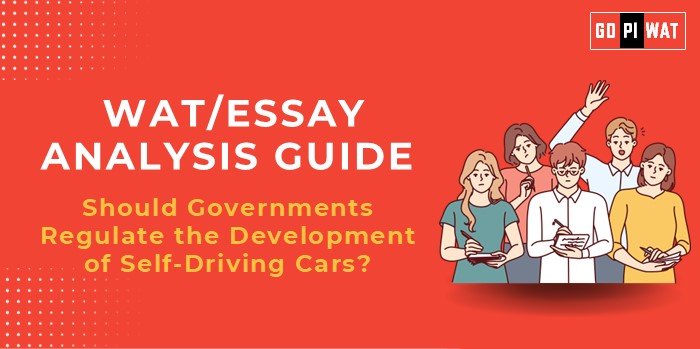📋 WAT/Essay Analysis Guide
🌐 Topic: Should Countries Impose Limits on Foreign Investment in Key Industries?
🌟 Understanding the Topic’s Importance
Regulating foreign investments in key industries reflects the need to balance economic development with national security. This topic aligns with B-school themes of strategic economic policymaking, global risk management, and ethical governance.
📝 Effective Planning and Writing
- ⏱️ Time Allocation:
- Reading and Planning: 5 minutes
- Writing: 20 minutes
- Review: 5 minutes
- 📖 Preparation Tips:
- Study recent cases of FDI restrictions in strategic sectors.
- Identify the implications of foreign investments for economic sovereignty.
🎯 Introduction Techniques for Essays
- Contrast Approach: “While FDI has fueled economic growth globally, it also raises concerns about sovereignty in industries like defense and technology.”
- Solution-Based Approach: “Strategic policies balancing foreign capital inflow and national interests are essential for sustainable growth.”
📚 Structuring the Essay Body
🏆 Achievements
- 📈 Economic Growth: FDI brings significant capital influx, driving GDP growth in developing economies.
- 🤖 Technological Advancements: Facilitates access to cutting-edge technologies, boosting innovation.
- 👩💼 Employment Generation: Multinational corporations create jobs, improving skill development and local livelihoods.
⚠️ Challenges with Comparative Analysis
- 🔒 National Security Concerns: Foreign control in critical industries like defense and telecommunications poses risks (e.g., Huawei in global 5G networks).
- 🌐 Dependency Risks: Over-reliance on foreign investment may undermine domestic industries and economic autonomy.
- 🇨🇳 Case Study – China: Prohibits FDI in sensitive sectors to safeguard sovereignty but limits global collaboration opportunities.
- 🇮🇳 Case Study – India: Sector-specific FDI caps (e.g., 49% in defense) balance foreign inflows with domestic control.
🌟 Future Outlook
- 🤝 Collaborative Policies: Encourage joint ventures and partnerships combining foreign expertise with local resources.
- 🔍 Comprehensive Screening Mechanisms: Implement robust checks for FDI in critical sectors like energy, defense, and technology.
- 📈 Dynamic Policy Updates: Adapt FDI regulations to reflect changing geopolitical and economic dynamics.
💡 Concluding Effectively
- Balanced Perspective Template: “While FDI remains a catalyst for economic growth, sector-specific regulations ensure the protection of sovereignty and strategic interests.”
🔎 Analyzing Successes and Shortcomings
🏆 Key Achievements
- 📊 Economic Contributions: Boosts GDP and accelerates development in key industries.
- 🌍 Global Integration: Encourages technology transfer and international partnerships.
⚠️ Ongoing Challenges
- 🔒 Security Threats: Risks of foreign influence in critical sectors.
- 🌐 Dependency Concerns: Excess reliance on foreign capital could lead to economic instability.
🔧 Recommendations for Sustainable Progress
- 🔍 Comprehensive Screening Mechanisms: Introduce robust systems to monitor and assess FDI in critical sectors.
- 🤝 Promote Collaborative Ventures: Foster joint ventures that align foreign investment with domestic interests.
- 📘 Regular Policy Updates: Adapt FDI frameworks to evolving global and domestic challenges.
📝 Sample Short Essays
⚖️ Balanced Perspective
“While FDI in key industries drives innovation and growth, limits are necessary to safeguard national security and sovereignty, ensuring long-term benefits for both the economy and the nation.”
🌟 Solution-Oriented
“Countries must adopt dynamic FDI frameworks that attract investment while prioritizing strategic interests, fostering growth without compromising security.”
🌍 Global Comparison
“Balancing open FDI policies like Singapore’s and protective approaches like China’s can provide insights for countries seeking sustainable and secure economic growth.”


